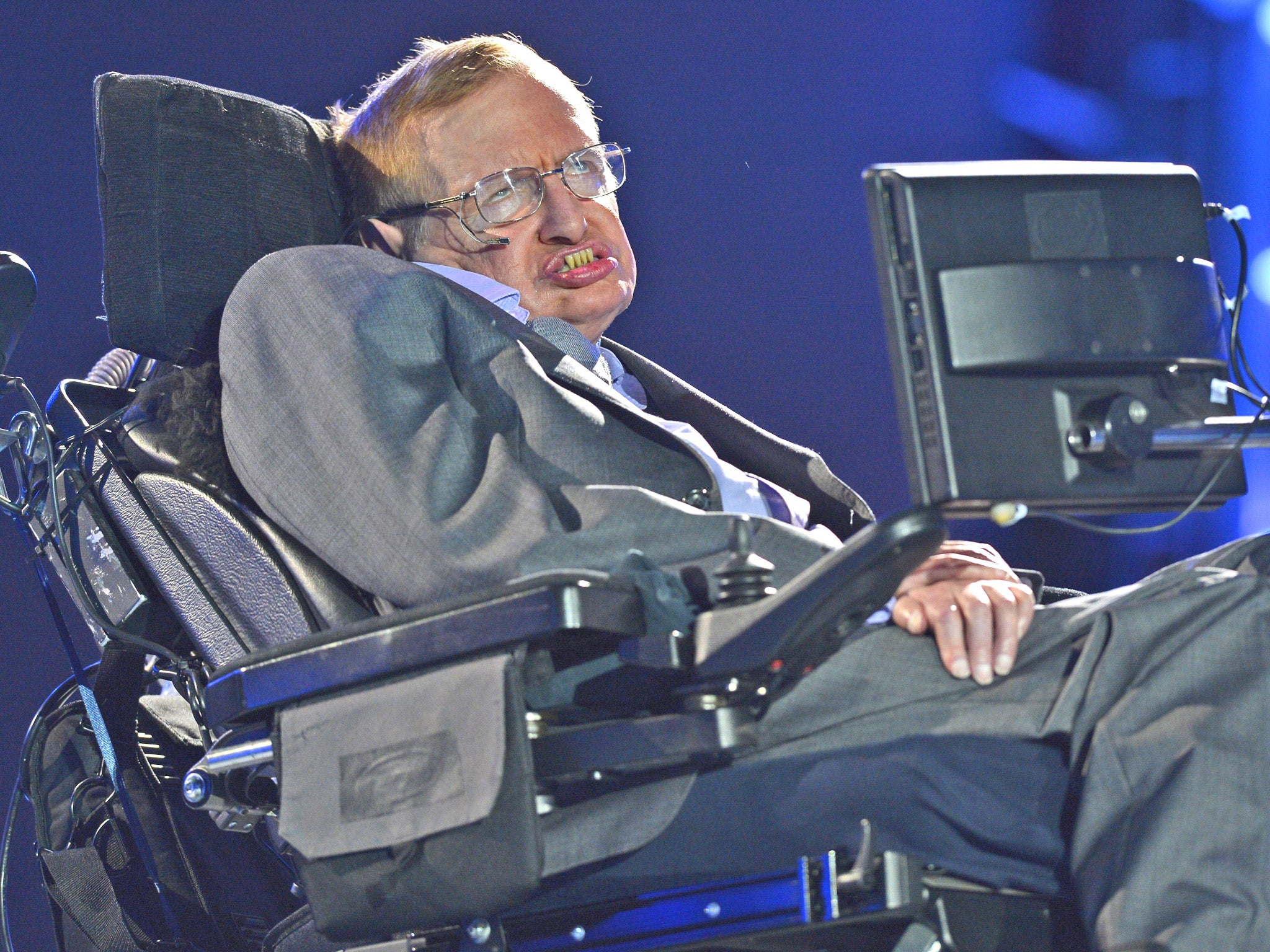Stephen Hawking's boycott of major Israel conference 'unjustifiable and wrong'
World-famous scientist had initially agreed to attend Israeli Presidential Conference

Your support helps us to tell the story
From reproductive rights to climate change to Big Tech, The Independent is on the ground when the story is developing. Whether it's investigating the financials of Elon Musk's pro-Trump PAC or producing our latest documentary, 'The A Word', which shines a light on the American women fighting for reproductive rights, we know how important it is to parse out the facts from the messaging.
At such a critical moment in US history, we need reporters on the ground. Your donation allows us to keep sending journalists to speak to both sides of the story.
The Independent is trusted by Americans across the entire political spectrum. And unlike many other quality news outlets, we choose not to lock Americans out of our reporting and analysis with paywalls. We believe quality journalism should be available to everyone, paid for by those who can afford it.
Your support makes all the difference.Physicist Stephen Hawking’s decision to pull out of attending a major conference in Israel next month has been met with the expected mix of praise and opprobrium.
The world-famous scientist had agreed to attend the Israeli Presidential Conference, hosted by president Shimon Peres, in late June, but changed his mind after four weeks of being pelted with requests not to go. Professor Hawking did not make a public announcement but a statement published by the British Committee for the Universities of Palestine with his approval described it as "his independent decision to respect the boycott, based upon his knowledge of Palestine, and on the unanimous advice of his own academic contacts there".
This appeared to contradict a statement made by Tim Holt at the University of Cambridge, where Professor Hawking was Lucasian Professor of Mathematics until 2009, who cited health reasons for the reversal. Hawking, 71, suffers from Lou Gehrig's disease. The university had earlier released a statement citing 'personal reasons' for his decision.
In Israel and around the world Hawking's decision was viewed as an indication of support for a growing academic boycott. The June conference, Facing Tomorrow, will feature major international personalities, including Bill Clinton, Mikhail Gorbachev and Tony Blair, attracts thousands of participants and this year will celebrate Peres's 90th birthday.
Conference chairman Israel Maimon said Hawking's decision was 'unjustifiable and wrong”.
He added: “The academic boycott against Israel is in our view outrageous and improper, certainly for someone for whom the spirit of liberty lies at the basis of his human and academic mission.”
Maimon called the imposition of a boycott incompatible with open, democratic dialogue.
A spokesman for the Fair Play group, which campaigns against boycotts of Israel, described the scientist's withdrawal as "bizarre".
He added: “Professor Hawking could have joined the conference and explained his views on the conflict in the region, just as many other participants have done. By boycotting the conference, he has thrown away this opportunity and will help nobody.”
Hawking has visited Israel four times in the past, most recently in 2006 when he delivered public lectures at Israeli and Palestinian universities as the guest of the British embassy in Tel Aviv.
Join our commenting forum
Join thought-provoking conversations, follow other Independent readers and see their replies
Comments